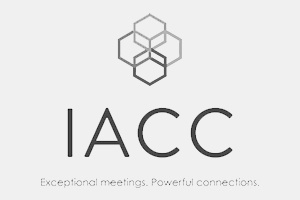Sustainable events not only have minimal negative environmental and social impact – they also impress attendees with your forward-thinking vision.
Sustainability is important for the planet and for business, as the onus is on everyone to do their bit. The value of planning events so they have minimal impact on the environment is clear, but making more environmental-friendly choices can also save money through conserving energy, lowering travel costs and buying locally. Not only does this approach do wonders for the environment, it raises awareness of socially-responsible or greener alternatives and gives a company’s brand some kudos at the same time.
Here's how to think sustainably in all aspects of event planning:
Travel
Carbon dioxide emissions can rise dramatically from the number of people who travel to an event alone, so find some alternative solutions to counter this.
- Choose a venue that is either close to public transport, or offers group transport for attendees from the nearest train station to the venue.
- For those who need to travel by car, actively promote car-sharing as an option and put people in touch who might be able to travel together.
- Encourage attendees to offset the carbon emissions from their journeys by purchasing emission offsets through a nominated scheme. You could offer a reduced ticket price or a free breakfast as an extra incentive for doing this.

Resources
Meetings and events tend to require a lot of extras to be ordered in, whether it’s stationery and decorations or altogether bulkier items, so it’s important to find ways to do this as sustainably as possible.
- Look for suppliers who have green credentials. Organisations such as Rainforest Concern and The Ethical Company Organisation give badges to companies who pay attention to green credentials.
- Check that anything you order is recyclable and use Fairtrade products whenever possible.
- Think about how much printed material you need and whether there are digital alternatives that would work just as well.
- Choose a venue that is able to provide some of the things you need, such as tables and chairs, which significantly reduces the environmental impact of your event.
- Ask your venue to make adjustments if you’d like your event to be greener, whether it’s to only switch the heating or air conditioning on when rooms are actually in use, or removing paper from the meeting room.

Accommodation
Think carefully about where event attendees will stay to minimise substantial knock-on effects to the environment.
- Work with a venue that has accommodation on-site or somewhere to stay within walking distance in order to avoid creating extra car or taxi journeys between hotels and the venue.
- Only recommend hotels to attendees that have green policies in place, from energy efficiency measures to waste minimisation schemes. Look for details too, such as hotels that use LED light bulbs or are supporting plastic reduction initiatives.

Food and Drink
Making savvy choices about the food and drink you serve at an event helps the environment and can have a positive knock-on effect on local communities too.
- Choose your event’s menu based on what is seasonal and available locally, rather than choosing a menu and then having to import food and drink from around the world.
- Look at the venue’s menus and see if they source their food locally. Alternatively if you need to get third-party caterers in, look for local businesses whose staff won’t have to travel far.
- Use water filters on-site and serve water in glass jugs, instead of ordering multiple bottles of water in plastic containers.
- Make the most of technology such as online registration tools, so you can accurately predict the final numbers of attendees and so reduce food and drink waste.

Be eco-friendly, have a social conscience and demonstrate how these issues matter to your company at your next event – it’s a win-win situation for everyone!






